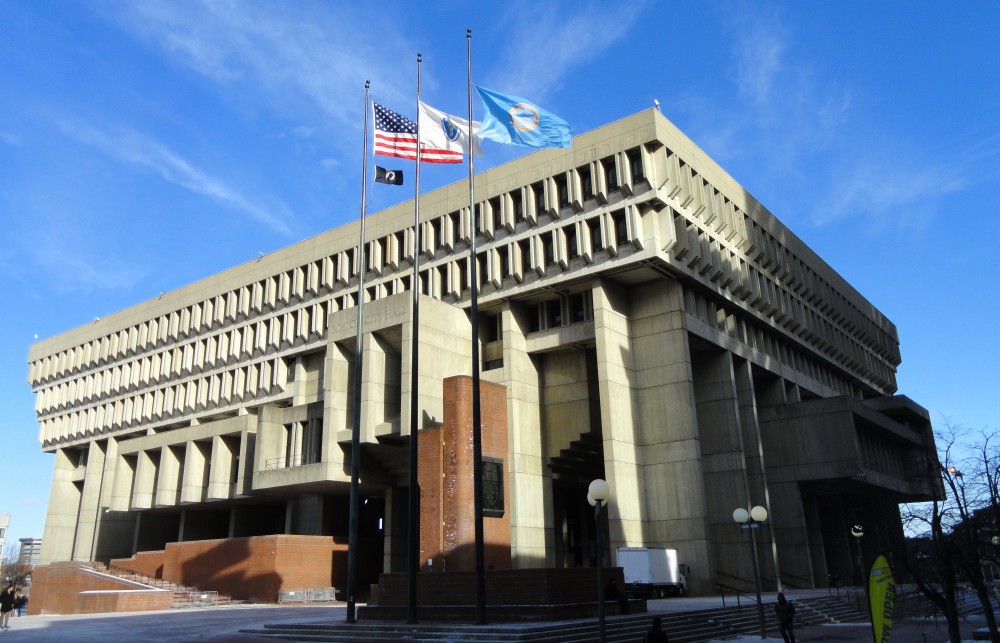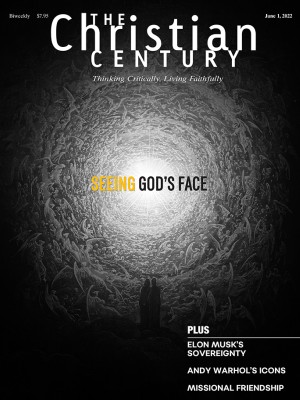Unanimous Supreme Court rules in favor of Christian flag

The City of Boston so clearly violated US law on religious liberty that a normally divided US Supreme Court ruled unanimously against the city on May 2.
At issue was a flagpole owned by the city. The city offers civic groups the opportunity to fly their flags briefly on the pole to encourage civic engagement. Yet when a conservative Christian group called Camp Constitution applied to fly its flag—which is widely known as the Christian flag—city officials denied the request, citing the religious nature of the flag’s “speech.”
The case, Shurtleff v. Boston, strikes at the heart of a favorite rallying cry of religious conservatives, the belief that they are denied free expression of their beliefs. But it also drew the attention of more traditional church-state separationists who believe Boston’s particular policies did not adhere to federal law and were therefore discriminatory.
Read our latest issue or browse back issues.
The ruling does make clear for all government bodies that they need to have policies in place and to understand the difference between government speech and all other speech. Boston had no written policies on its community flag program and had never turned down a request until Camp Constitution’s.
Writing for the court’s unanimous majority, Justice Stephen Breyer said that “on balance, Boston did not make the raising and flying of private groups’ flags a form of government speech. That means, in turn, that Boston’s refusal to let Shurtleff and Camp Constitution raise their flag based on its religious viewpoint ‘abridge[ed]’ their ‘freedom of speech.’”
Justice Samuel Alito wrote a separate concurring opinion which was joined by Justices Clarence Thomas and Neil Gorsuch, while Gorsuch also wrote his own separate opinion which was joined by Thomas. The other five justices joined in Breyer’s opinion.
Amanda Tyler, executive director of Baptist Joint Committee for Religious Liberty, tweeted after the court’s announcement: “I’m not surprised, based on the unique facts of this case (Boston’s policy and practice) and questioning by the justices at oral argument.”
However, she said, “I’m concerned by the concurring opinions by Alito and Gorsuch, who have a much more limited view of what constitutes government speech and a violation of the Establishment Clause. Only Thomas joined them in these extreme views.”
For now, “the impact of this opinion seems fairly limited, maybe even to the particular facts of this policy,” Tyler said. And one lesson is that “there is a way for cities to make clear that flag raisings constitute government speech. Boston didn’t do it here, but it can revise its policy for the future.”
Rachel Laser, president of Americans United for Separation of Church and State, echoed some of Tyler’s sentiments but also sounded a warning about possible abuse of the ruling.
“This decision doesn’t change the Constitution’s requirements that the government cannot promote, favor, endorse or sponsor religion,” she said. “Nevertheless, this ruling could undermine church-state separation if it is abused in ways that end up favoring the dominant religious majority. But governments might avoid that by closing the forum at any time, as the court noted. Additionally, the flags flying above city hall would have been government speech if Boston had stated so in a policy or exercised more discretion in deciding which flags to display. Other governments might take that path.”
Mat Staver, founder and chairman of the conservative evangelical group that represented Camp Constitution, hailed the unanimous ruling as a victory beyond this one case.
“This 9-0 decision from the Supreme Court strikes a victory for private speech in a public forum. This case is so much more significant than a flag,” he said. “Boston openly discriminated against viewpoints it disfavored when it opened the flagpoles to all applicants and then excluded Christian viewpoints. Government cannot censor religious viewpoints under the guise of government speech.” —Baptist News Global





